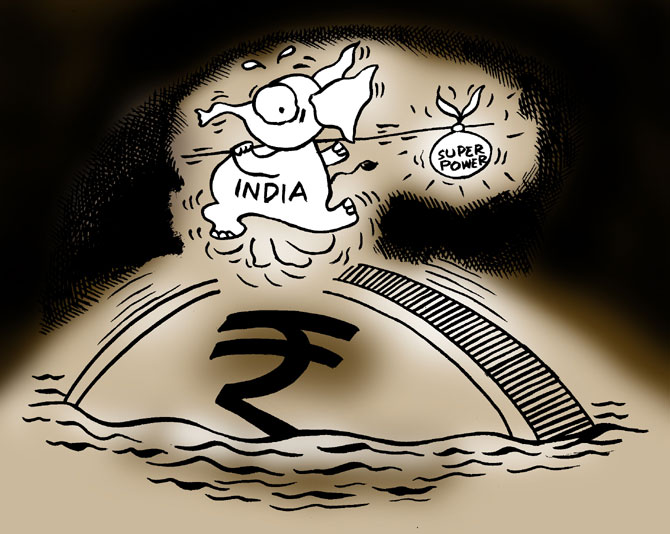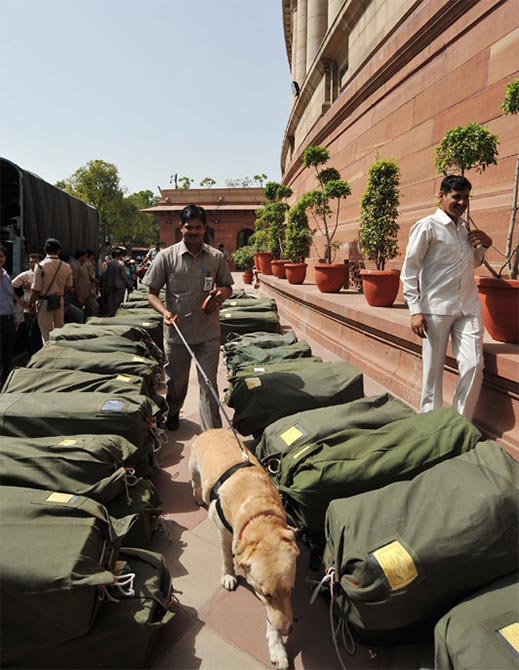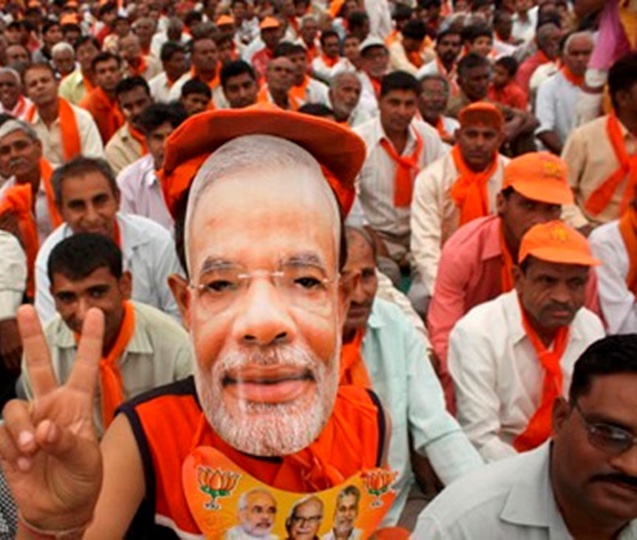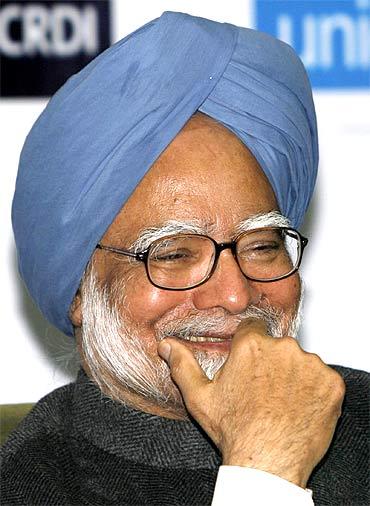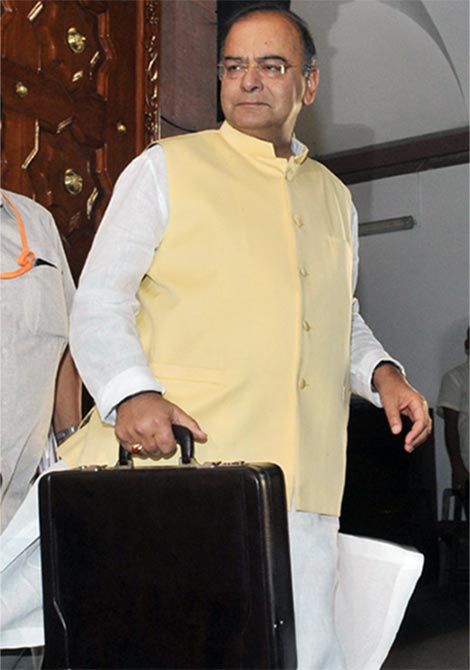 | « Back to article | Print this article |
Budget: The annual drama over a report on inefficiencies
The Bharatiya Janata Party, which promised us "maximum governance, minimum government" ought to make the annual Budget less of a national drama than it is today, says Rahul Jacob.
Imagine the annual general meeting of a public sector behemoth that year after year promises a turnaround, but disappoints every time.
Consider a balance sheet that is revised almost as soon as it is printed and an income statement where extraordinary items (details to be disclosed later) abound. And the manager of this unwieldy PSU compounds matters by making a speech that is two hours long, usually unleavened with humour.
Would you show up for such an AGM? In India, we all do. We are united in our obsession with this annual ritual called the Budget, always written - for reasons that are hard to understand - with a capital B.
Please click NEXT to read more…
Budget: The annual drama over a report on inefficiencies
Newspapers devote pages to speculation on which way the finance minister is leaning weeks before the Budget and then to debating whether the targets for deficit reduction are too optimistic.
Thursday's Budget will prove no exception. The fuel subsidies are unchanged in a period of global uncertainty about oil prices. Similarly, the outlays for the food subsidy and the rural employment guarantee scheme seem not to account for the roll-out of the Food Security Act and the likelihood of a drought this year.
This suggests that the fiscal deficit target of 4. 1 per cent will be breached. Ambitious targets for disinvestment are set year after year; this year's target of raising Rs 63,000 crore (Rs 630 billion) in nine months is more than double last year's figure.
It may not be met, but no matter; the government has met or exceeded its disinvestment target only four times since 1991. We may be a country where paisa vasool and living within our means is a national credo, but our governments are like that only.
Please click NEXT to read more…
Please click here for the Complete Coverage of Budget 2014 -15
Budget: The annual drama over a report on inefficiencies
This Budget was expected to be very different as it is a maiden effort from Narendra Modi's government. And it is a smart and creative business-friendly effort.
The Budget will make it easier for small and medium enterprises to raise money and for banks to lend to the beleaguered infrastructure sector.
It reaches out to foreign institutional investors whose almost inexhaustibly credulous faith in India deserves recognition. Separately, it makes the right soothing noises on retrospective taxation; a high-powered committee to resolve such issues, which have cost India both money and face, is a fine idea.
On the other hand, there is not much by way of new ideas or action in terms of taking an axe to subsidies. There were 28 - count em - new schemes announced of Rs 100 crore each, mostly for the social sector.
Please click NEXT to read more…
Please click here for the Complete Coverage of Budget 2014 -15
Budget: The annual drama over a report on inefficiencies
Our hyper anticipation of the Budget is a legacy of 1991, but those were unusual days.
That Budget was set against the technicolour backdrop of our gold bullion being moved to the Bank of England and ledgers of absurd industrial licensing being metaphorically torn up at one sitting of Parliament.
The excitement of those Budgets of 1991 and 1992 was heightened in the still early days of cable TV that took Prannoy Roy's memorable roundtables with experts like Bimal Jalan and Ashok Lahiri into our living rooms.
Manmohan Singh may mumble as often as not, but it is hard not to get goosebumps remembering the conclusion to his speech when he quoted Victor Hugo: "No power on earth can stop an idea whose time has come."
In no other country, not even Britain from whom we adopted these practices, is the budget such an object of near national fascination and trepidation. British Chancellor of the Exchequer George Osborne's budget speech in March was about half as long as Arun Jaitley's.
Please click NEXT to read more…
Please click here for the Complete Coverage of Budget 2014 -15
Budget: The annual drama over a report on inefficiencies
The US budgets may be more voluminous than ours, but that is because it is a statement of record of economic measures already debated in Congress through the year.
In India, we must wait for the Budget to understand our government better - to learn about a Rs 10,000 crore venture capital fund, to hear about the vast discrepancy between the Rs 2,000 crore in total that the last government announced for the Nirbhaya fund and the Rs 200 crore this government proposes to spend on women's safety.
"Reform is a process, not an event," was one of the best soundbites of Thursday evening.
The Bharatiya Janata Party, which promised us "maximum governance, minimum government" ought to make the annual Budget less of a national drama than it is today.
Please click here for the Complete Coverage of Budget 2014 -15
